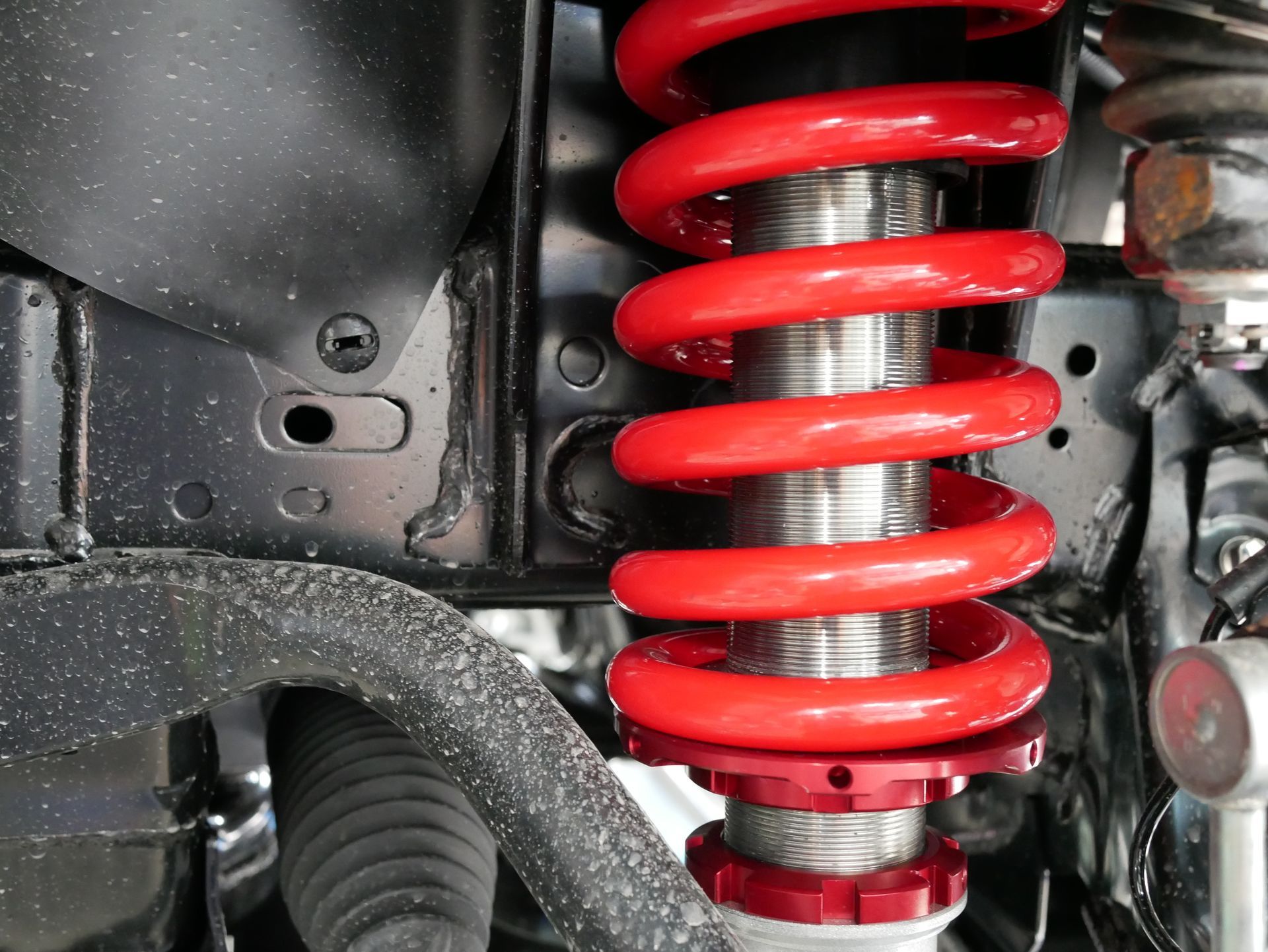Suspension Service
Keeping Your Ride Smooth: Understanding Your RV's Suspension System
One of the most critical systems in any RV is the suspension system. For a smooth ride and reliable handling, the RV’s suspension keeps the tires on the road and absorbs impacts from bumps.
The suspension system works quietly under the RV as a bridge between the tires and the chassis. Contrary to common misconceptions, It’s an intricate system that isn’t just about comfort but safety. Timely suspension maintenance and service at Texas RV Service and Repair LLC
is essential for the safety of the driver and passengers.

What Is a Suspension System in RVs?
A RV’s suspension system increases the friction between the tires and the road while absorbing any impact from uneven surfaces. It comprises springs, dampers, and other components under the RV's chassis.
Suspension geometry refers to the arrangement of the components based on lengths and angles to ensure ride quality on rough terrains.
The suspension system works by absorbing energy from kinetic impact, preventing the tires from losing contact with the surface. Tires and suspension are vital for RV ride comfort, insulating the main cabin from shocks.
Even newly paved roads are never perfect. Surface unevenness, especially bumps and potholes, can create vertical acceleration. This can cause the wheels to jump and slam back on the road, impacting the RV’s body. With a well-maintained suspension system, this impact is mostly absorbed.
At Texas RV Service and Repair LLC, we provide all suspension services, from maintenance to repairs. Our experts are familiar with suspension systems of both old and modern RVs, ensuring your drives are smooth and safe.
Key Suspension Components
The RV suspension components work together to absorb shocks from the road and make RV handling effortless. Here’s what a RV’s suspension system is made of:
- Springs help control the height and load between the suspension and the chassis, absorbing the wheels' movement.
- Dampers, or shock absorbers, absorb and dampen the shocks generated from impact with bumps and dips on the road and ensure that the tires always stay in contact with the surface.
- Struts include the springs and shock absorbers. They are commonly used in front-wheel drive RVs.
- Control arms connect the RV’s frame with the front wheels. These arms move up and down as the wheels move to maintain the tire’s contact with the road surface.
- Ball joints, bearings, and bushings allow the RV to turn and enable the control arms to move up and down. Bearings and bushings reduce friction between the moving parts of the suspension system.
Common Suspension Problems
While suspension parts are built to last long, they’re not immune to wear or damage. Suspension service from Texas RV Service and Repair LLC is essential if a component is worn out or the system isn’t working.
Here are some of the most common issues and the signs that a suspension repair is due.
- Bouncing on Bumps and Dips: It’s normal to feel some impact from large bumps and dips, but if your RV bounces on every bump or dip, there’s likely some issue with the shock absorbers or struts. A suspension expert at Texas RV Service and Repair LLC can find the exact problem, typically worn-out springs or dampers.
- Pulling to One Side: If your RV doesn’t go straight and pulls to one side, it could be an issue with the suspension system or wheel alignment. The latter is a more common cause of this issue. However, checking for suspension issues is also recommended because wheel alignment is linked with suspension.
- Lower Corner or Side: If a corner or side of the RV feels lower than the rest of the body, a damaged or weak spring or damper is likely the cause. The suspension system also supports the chassis and keeps the RV's body balanced.
- Rolling to Side: Suspension problems can impact handling performance, sometimes making it feel like your RV is rolling to one side when turning. As a result, sharp turns can be challenging to handle.
- Steering Difficulty: Tough steering, especially at low speeds, can be linked to problems with the suspension system.
- Diving and Dipping on Brakes: If your RV dips or dives down when braking, it most likely has an issue with the suspension. The springs and shock absorbers fail to absorb the downward force on the front of the RV on braking.
Try Texas RV Service and Repair LLC for Suspension Service
Whether you need suspension tuning or suspension upgrades, the experts at Texas RV Service and Repair LLC can provide expert diagnostics, maintenance, and services in Georgetown, TX.
Your RV's suspension system can ensure a smooth ride even on rough roads and make handling bumps, dips, and turns easier. Texas RV Service and Repair LLC can diagnose and fix any issues with your RV’s suspension components with transparency and fair prices.
Contact us today at (737) 773-2050
to discuss our suspension services!

